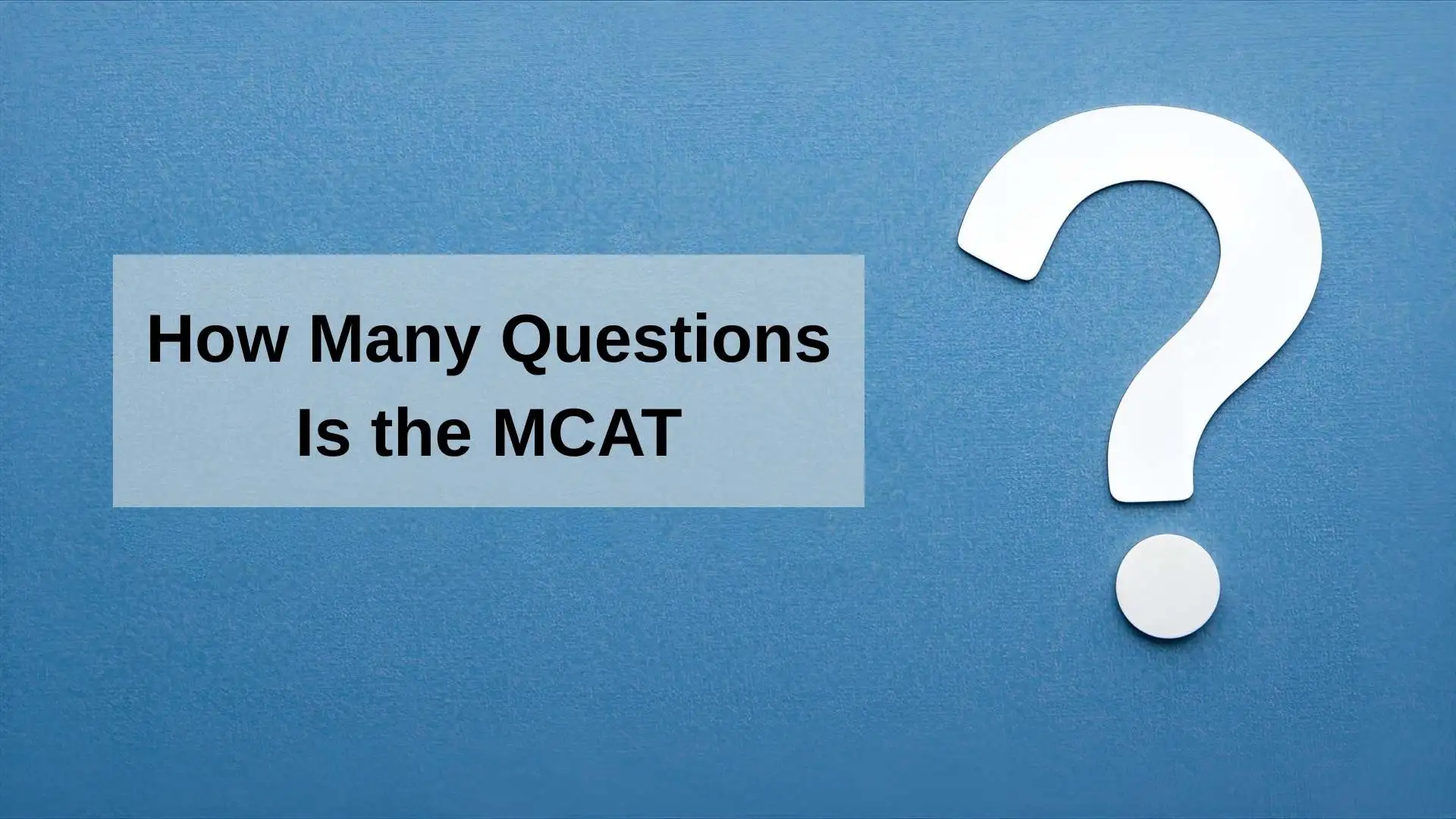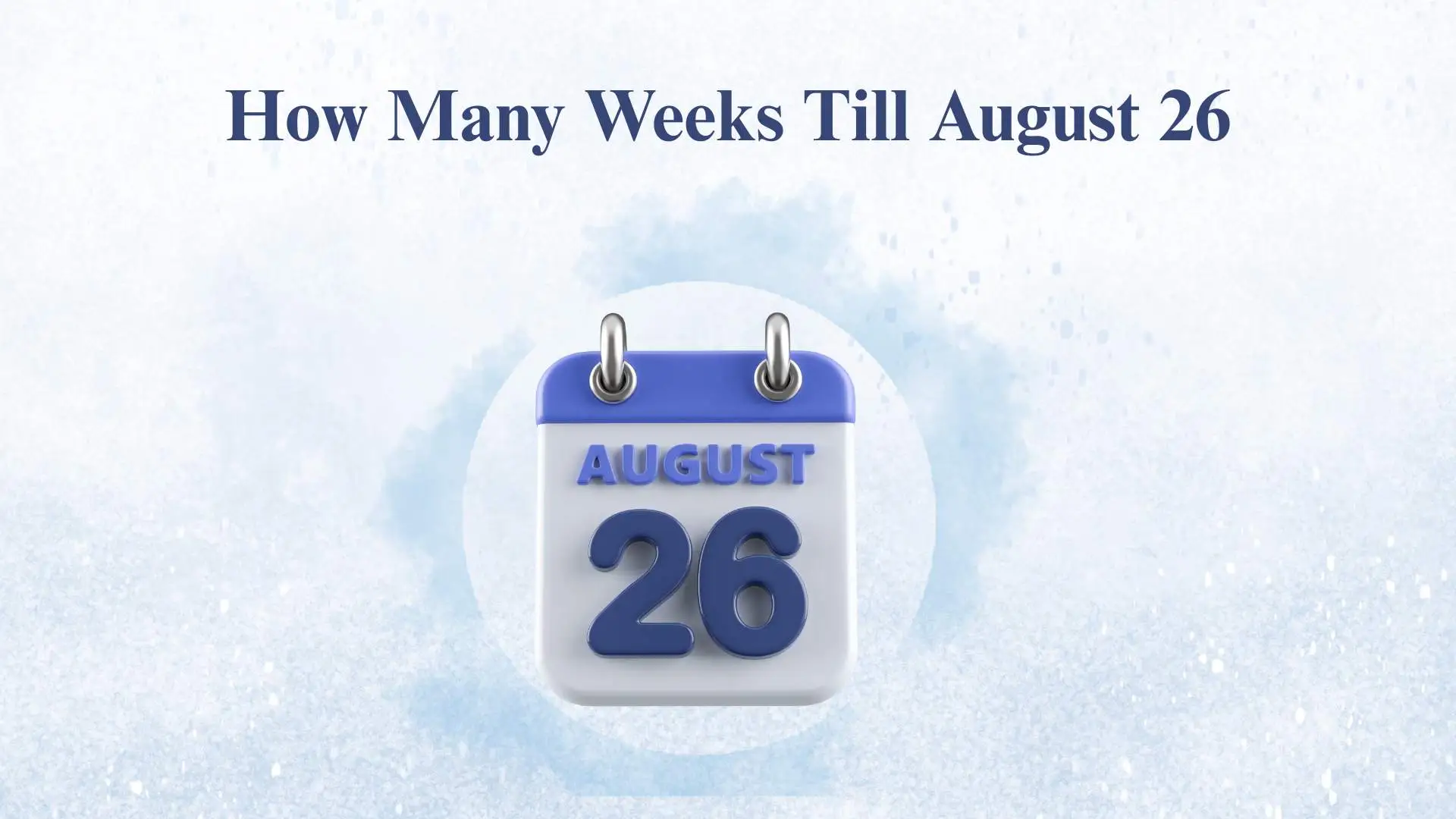If you’re preparing for the MCAT (Medical College Admission Test), one of the first things you’ll want to know is: “How many questions are on the MCAT?”
Just like measuring ingredients before cooking, knowing the exact question count helps you plan your study strategy, manage time during the test, and avoid surprises on exam day.
This guide explains the total number of MCAT questions, how they’re divided by section, why the count matters, and tips to remember it easily.
🧩 Understanding the MCAT “Units”
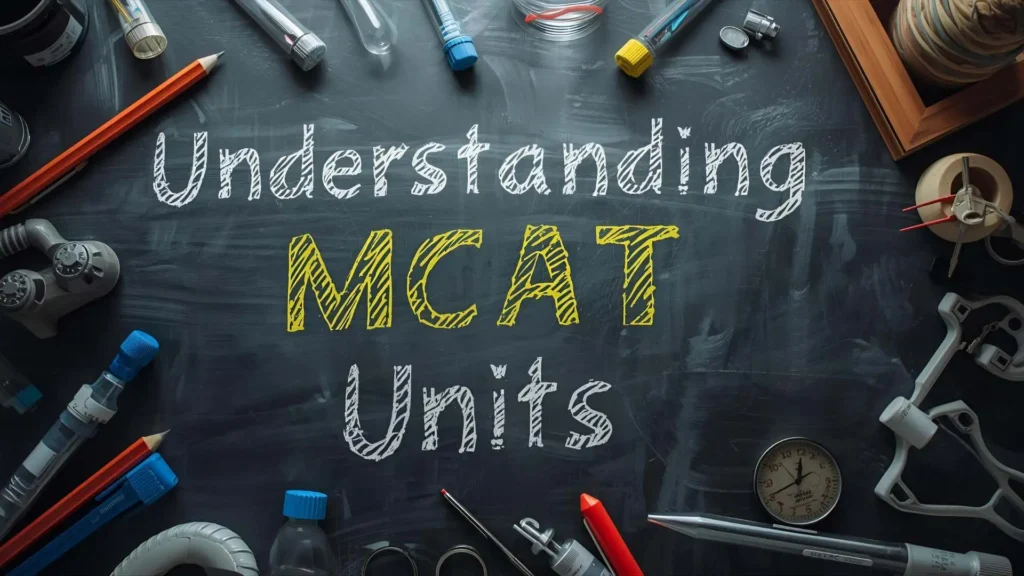
Think of the MCAT like a big recipe. The “ingredients” are:
- The questions → every multiple-choice item you must answer.
- The sections → four different parts, each with its own focus.
Once you know the breakdown, you can pace yourself better and create a smarter study plan.
✅ Quick Answer | How Many Questions Is the MCAT?
👉 The MCAT has 230 multiple-choice questions in total.
You’ll face these across four sections, each timed separately.
📊 MCAT Question Breakdown by Section
Here’s a simple chart to show exactly how the questions are divided:
| MCAT Section | Number of Questions | Time Allowed |
| Chemical & Physical Foundations of Biological Systems (Chem/Phys) | 59 | 95 minutes |
| Critical Analysis & Reasoning Skills (CARS) | 53 | 90 minutes |
| Biological & Biochemical Foundations of Living Systems (Bio/Biochem) | 59 | 95 minutes |
| Psychological, Social & Biological Foundations of Behavior (Psych/Soc) | 59 | 95 minutes |
| Total | 230 | ~7.5 hours (including breaks) |
🎯 Why Knowing the Question Count Matters
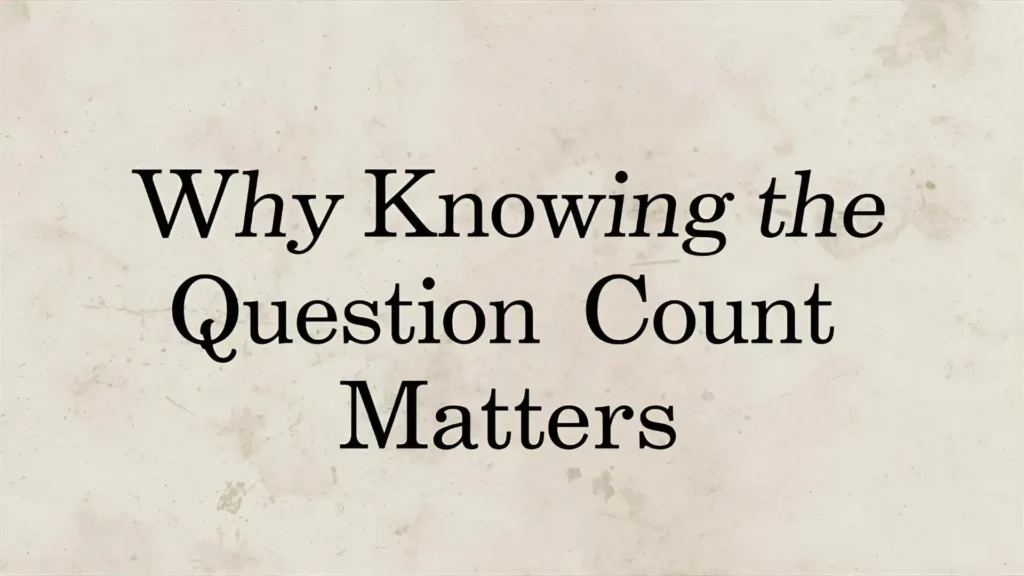
Understanding the exact number of questions is more than trivia—it’s strategy.
- Time management → You know how many questions to answer per minute.
- Study planning → Helps divide practice by section.
- Stress control → Fewer surprises means more confidence.
- Scoring strategy → Knowing how each section is weighted helps prioritize.
🧠 Easy Tricks to Remember the Question Count
Here’s a mnemonic:
- “59–53–59–59” → That’s the order of the four sections.
- Add them up: 59 + 53 + 59 + 59 = 230 questions total.
Or think of it like:
- 3 big sections with 59 questions each.
- 1 smaller section (CARS) with 53.
⚠️ Common Mistakes Students Make
- Thinking all sections are equal → CARS has fewer questions but is just as important.
- Forgetting total time → The MCAT lasts about 7.5 hours including breaks, not just the questions.
- Skipping practice exams → Knowing the count is useless without simulating the real test.
Pro Tip: Practice pacing with timed sections to avoid running out of time on exam day.
🔄 Variations or Differences
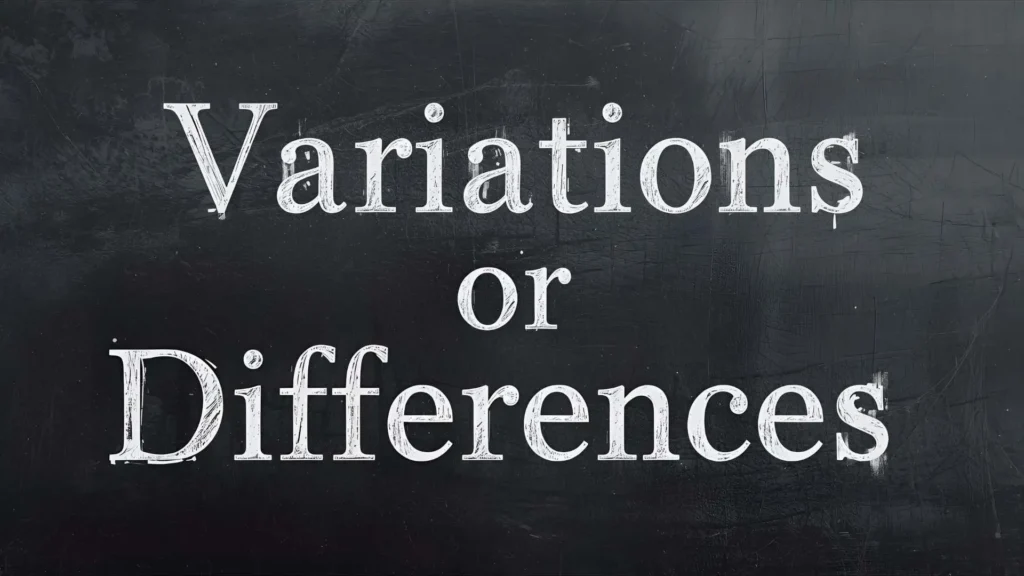
The MCAT is standardized by the AAMC, so the total question count (230) doesn’t change. However:
- Experimental questions may appear, but they’re still counted in the total.
- Some prep resources include extra practice questions, so don’t confuse them with the official test.
🏡 Real Life Scenarios Where This Info Helps
- Building a study schedule → Plan 59-question practice blocks for realism.
- During the test → Keep mental track of pacing (about 1.5 minutes per question).
- With prep courses → Verify they match the actual question count.
- When explaining to others → Many friends or mentors will ask how long or big the test is.
❓ FAQ | How Many Questions Is the MCAT?
Q1: How many total questions are on the MCAT?
A: 230 multiple-choice questions.
Q2: How many questions are in each MCAT section?
A: Chem/Phys = 59, CARS = 53, Bio/Biochem = 59, Psych/Soc = 59.
Q3: How long does the MCAT take?
A: About 7.5 hours including breaks.
Q4: Are all MCAT questions multiple-choice?
A: Yes, every question is multiple-choice with four answer options.
Q5: Do practice tests have the same number of questions?
A: Official AAMC practice exams mirror the real exam (230).
Q6: Does the MCAT question count change year to year?
A: No, it’s standardized—always 230 questions.
🏁 Conclusion
So now you know—the MCAT has 230 questions in total, spread across four timed sections. By memorizing the simple pattern (59–53–59–59), you’ll never forget it. Understanding this breakdown helps you study smarter, pace yourself during the test, and boost your chances of getting the score you need for med school.

Thomas Gray is a seasoned writer and researcher with a passion for uncovering the layers of language, culture, and human expression. With years of experience in content creation and linguistic exploration, he brings clarity and depth to complex subjects, making them accessible and engaging for readers worldwide. His work often blends academic rigor with a storyteller’s voice, earning him recognition in both digital and print publishing circles.
Thomas has contributed extensively to educational platforms, language-focused blogs, and international publications. His keen eye for detail and commitment to accuracy make him a trusted voice in the fields of linguistics, history, and cultural studies.
He is the author of several professional works, including “The Language Atlas“, “Global Words: A Linguistic Journey Across Cultures“, and “Meaning in Translation: Bridging Words and Worlds.”

